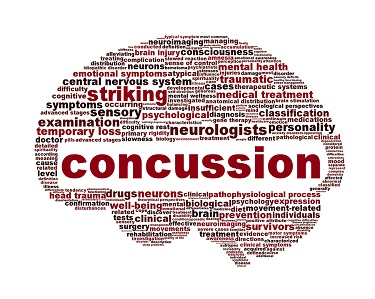Interest in traumatic brain injuries has been on the rise for the past few years. Awareness has been raised by head injuries to high-profile professional athletes such as hockey player Sidney Crosby and snowboarder Kevin Pearce, as well as to Tampa high school football player Sean McNamee. Sporting events which lead to head injuries are often televised, and have been helpful in calling attention to the sometimes hidden dangers of traumatic brain injury.
According to the Centers for Disease Control, about 2.5 million emergency department visits, hospitalizations, or deaths were associated with TBI in 2010. About 40% of those were attributable to falls, which disproportionately affect children under 14 years of age or adults over 65. Being hit with an object, also called blunt trauma, was the second leading cause (15%), followed by motor vehicle crashes (14%), and assault (10%).
Victims of traumatic brain injuries and their families are often overwhelmed with medical information which is sometimes difficult to process. Understanding a few key terms can be very helpful to make sure that the victim is treated properly. The Glasgow Coma Scale is used to determine basic severity of the head injury. It assesses a patient on eye opening, verbal ability, and motor responses, assigning points for various reactions. A higher score indicates greater function, or a milder injury, and a lower score indicates severe damage.
A concussion is the most common TBI, caused by a bump or blow to the head that forces movement of the brain within the skull. It is classified as a closed-head injury because the victim’s skull is not penetrated. A concussed victim may or may not lose consciousness, and the injury may not be immediately obvious. The amount of force required to sustain a mild head injury is not as great as one would think, and the symptoms are often delayed or ignored. Symptoms may include headache and dizziness, nausea, tiredness, or lack of concentration. Concussions are not usually life-threatening, but their effects can be serious and long-lasting.
Cognition, or thinking skills, is commonly affected by TBIs. Ability to concentrate is decreased, and information is processed more slowly. Memory may be disrupted, and accomplishment of even simple tasks may be hampered by lack of problem-solving abilities.
Lethargy, or sleepiness, is a common symptom of moderate head injury, caused by swelling of the brain inside the skull. A victim of a moderate head injury may lose consciousness for 20 minutes to 6 hours. Although the victim is not alert, they can be aroused with effort. Severe head injury will result in a coma, or an unconscious state, lasting more than 6 hours. The victim does not respond to visual or audible stimulation and cannot communicate. This is different from a vegetative state, in which the victim may experience wake and sleep cycles and respond to stimulation.
Diagnosis of most head injuries will involve a CT scan, or computerized tomography. CT scans combine x-ray views from a variety of angles, which are then pieced together to provide cross-sectional views of the inside of the body. It is very helpful in observing internal injuries, such as those within the skull.
Once the initial diagnosis and prognosis for recovery are established by your physician, it is important to consult with an experienced traumatic brain injury attorney to determine if the injury was due to someone else’s negligence, whether the injury occurred in a car or motorcycle accident, or during a sporting event. The attorneys at Dolman Law Group Accident Injury Lawyers, PA are committed to understanding the medical nuances of traumatic brain injury so that they can procure just compensation for victims. If we can assist you with a free case evaluation and consultation regarding a traumatic brain injury, please call us at 727-451-6900.
Dolman Law Group Accident Injury Lawyers, PA
800 North Belcher Road
Clearwater, FL 33765
727-451-6900






